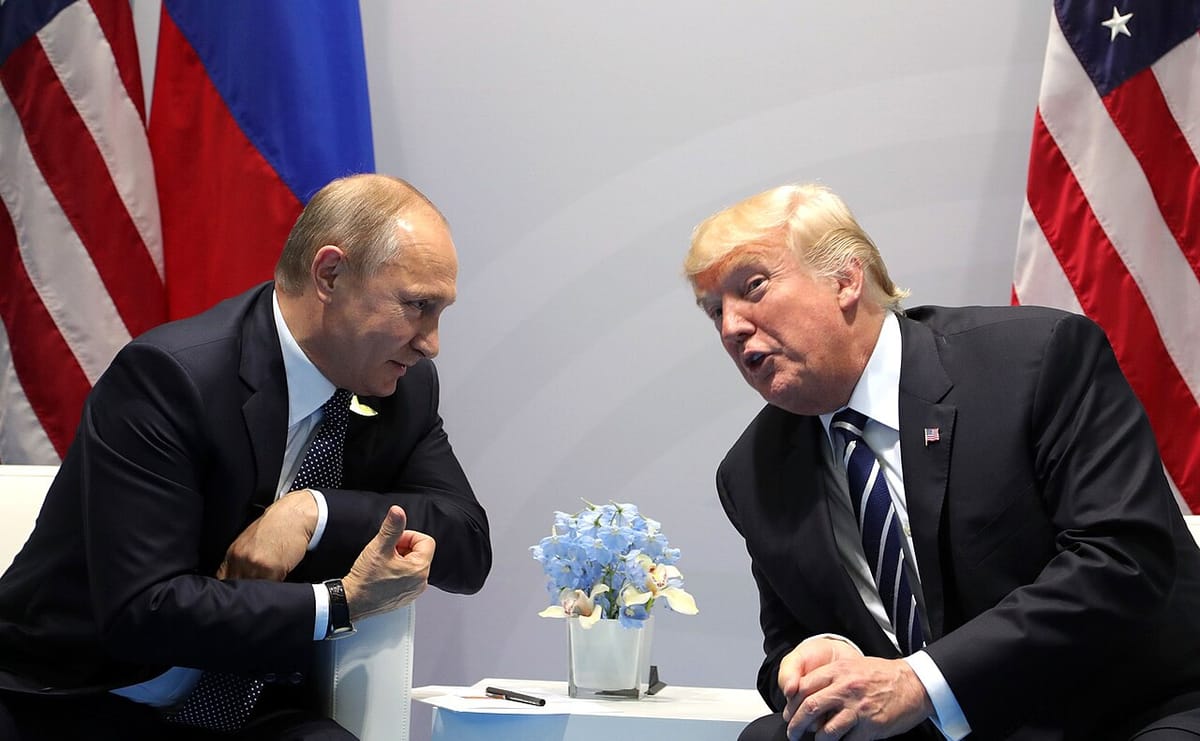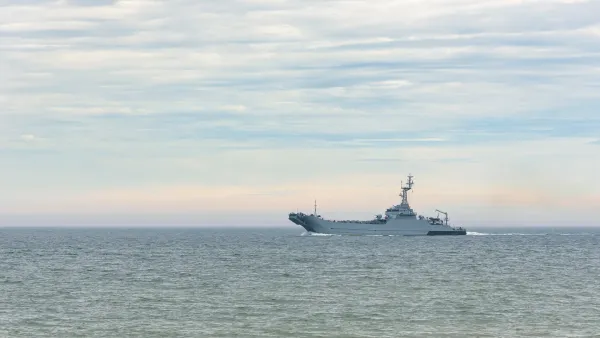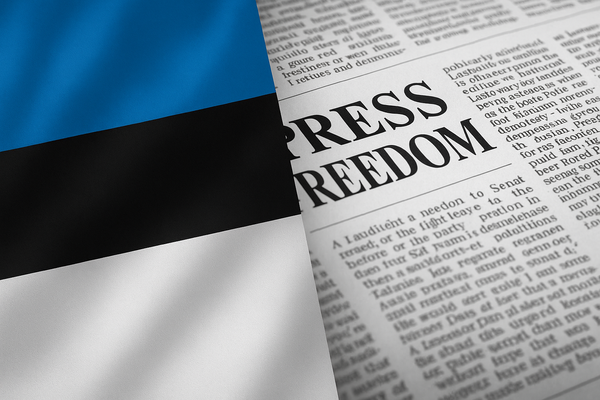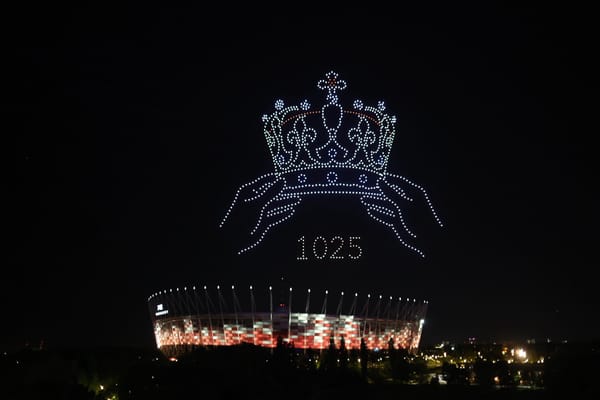
Poland PM urges defence spending hikes as Baltics cut ties with Russian electricity grid
Polish Prime Minister Donald Tusk called on European leaders to increase their defence spending while maintaining close ties with the US, before an emergency summit of European leaders in Paris on Tuesday, 18 February.
US President Donald Trump’s decision to attempt to negotiate a peace deal on Ukraine with Russian President Vladimir Putin, without prior consultation with European allies or Ukraine itself, has raised alarm in Central and Eastern Europe (CEE). This move, coupled with US Vice President JD Vance’s recent populist criticism of European democracies at the Munich Security Conference on 14 February, have intensified fears of a transatlantic rift.
Ukraine President Volodymyr Zelenskyy was only informed of Trump’s 90-minute phonecall with Putin on 12 February after the event, and many CEE politicians fear that a rushed peace deal could lead to territorial concessions and undermine European security.
Tusk warned in a tweet that “If we, Europeans, fail to spend big on defence now, we will be forced to spend ten times more if we don’t prevent a wider war,” adding that Poland’s expenditure of 4.7% of GDP on defence is the highest among NATO members.
However, Slovenian President Natasa Pirc Musar criticised the emergency meeting in Paris, stating that it was a mistake not to invite representatives from other European countries “Symbolically, the organizers of the summit in Paris are showing the world that not all EU countries receive equal treatment,” Musar said in a statement, local news website index.hr reported.
Baltics delink from Russian grid
This political back and forth amongst CEE politicians came as the Baltic states made a decisive break from Russian influence. On 15 February, the three Baltic nations – Estonia, Latvia and Lithuania – permanently disconnected from Russia’s BRELL electricity grid, ending a Soviet-era practice.
European Commission Vice-President Kaja Kallas, the EU’s top diplomat, hailed the move as a victory for European unity and energy independence. Russia can no longer use energy as a tool of blackmail, added Kallas who was Estonian prime minister from 2021-24.
The transition to the EU’s power network, accelerated by Russia’s 2022 invasion of Ukraine, is part of a broader strategy to strengthen regional security and resilience against geopolitical pressure from Moscow.
European politicians warn of appeasement
Following the phonecall with Putin, Trump announced that US and Russian teams would begin negotiations immediately and that he would inform Ukrainian President Volodymyr Zelenskyy.
Seasoned CEE politicians insist that any durable peace must involve Ukraine as a key stakeholder. Gabrielius Landsbergis, Lithuanian foreign minister from 2020–24, criticised Trump’s approach, calling it “beyond the realm of understanding” that peace talks could proceed without Ukraine’s direct involvement. He urged Europe to resist any agreement that would leave Ukrainian territories under Russian control.
“If Europe is unable to prevent this, then it’s a battle lost. It’s Putin’s victory. It’s not just Ukraine’s future at stake—it could very well be Europe’s future,” Landsbergis told the Kyiv Independent, adding that the Nordic and Baltic countries, which have provided more aid to Ukraine than larger European nations, should be represented in any discussions.
Estonia’s ambassador to Ukraine, Annely Kolk, echoed this stance, emphasising that Russia only responds to strength. She argued that Europe must use all available tools, including sanctions on Russia’s shadow fleet and the seizure of frozen Russian assets, to maintain pressure on Moscow. “We haven’t strengthened Ukraine enough over the past three years. Putin may be ready for negotiations, but that doesn’t mean he is sincere or will keep his promises,” Kolk added.
Calls for stronger security guarantees
Urmas Reinsalu, who was Estonian foreign minister from 2019-21 and 2022-23, said the launch of negotiations between Trump and Putin is not a promising development and called for representatives of the free European continent and Ukraine to be at the negotiating table.
Reinsalu insisted that a sustainable European security framework requires NATO membership for Ukraine and strong transatlantic security guarantees, and urged European leaders to demonstrate determination through concrete actions rather than words.
The Latvian Foreign Ministry echoed these concerns, stating that Ukraine’s participation in peace talks is non-negotiable. In a statement, the ministry reaffirmed Latvia’s commitment to a just, comprehensive and lasting peace in Ukraine, that guarantees both Ukraine’s and Europe’s security. The ministry added that internationally recognised borders must not be changed by force, recalling that the UN affirmed Ukraine’s 1991 agreement.
US veep slams Romanian election annulment
Vance also stirred up controversy in Munich by questioning Romania’s decision to annul its presidential election following allegations of Russian interference.
Romania’s Constitutional Court cancelled the first election round on December 6 after intelligence reports suggested that foreign actors had manipulated social media – particularly TikTok – to benefit far-right, pro-Russian candidate Calin Georgescu. Russia has denied these allegations.
Vance dismissed these concerns, claiming that Europe is experiencing a retreat of free speech and democratic freedoms. He criticised Romania’s decision, calling the intelligence reports “flimsy” and suggesting that European leaders pressured the country into cancelling the vote. His remarks were welcomed by Romanian opposition politicians but met with skepticism elsewhere in CEE.
European responses to Vance’s speech
While Vance’s speech aligns with US conservative populist rhetoric, it does not necessarily resonate across CEE nations. Many countries in the region, having experienced Soviet-era repression, see European legal frameworks as necessary safeguards rather than authoritarian overreach.
His emphasis on EU digital governance and election oversight as threats to democracy taps into broader concerns about national sovereignty versus EU federalism. Yet, CEE states, and particularly Poland and the Baltics, support strong European security mechanisms to counter Russian influence and would likely reject comparisons between EU institutions and authoritarian regimes.
On migration, Vance’s claims about rising migrant-related crime in Germany align with narratives from Hungarian and Polish leaders, who have linked migration to security threats.
Growing apprehension over US-EU relations
With Trump and Putin talks in progress, and Vance’s remarks raising concerns about US-EU relations, many in CEE fear a shift in US foreign policy that will prioritise transactional diplomacy over collective security.
CEE officials stress that sustained military and economic assistance to Ukraine is crucial not only for Ukraine’s survival but also for deterring further Russian aggression. They argue that any peace deal must reinforce Europe’s collective security framework, ensure Ukraine’s NATO aspirations remain viable, and uphold territorial integrity.





